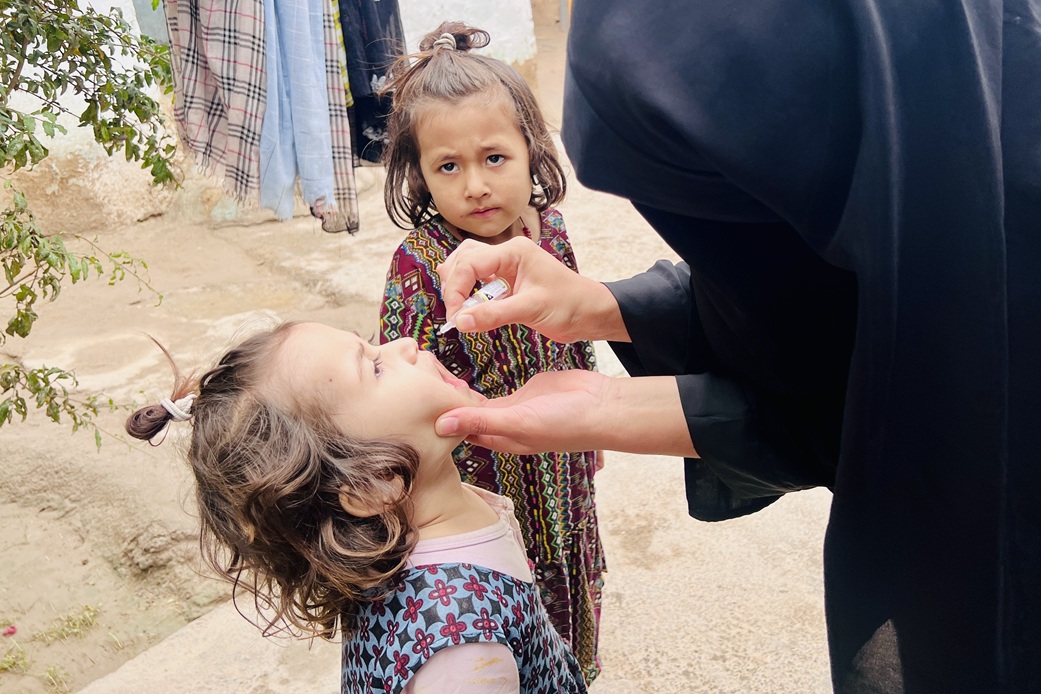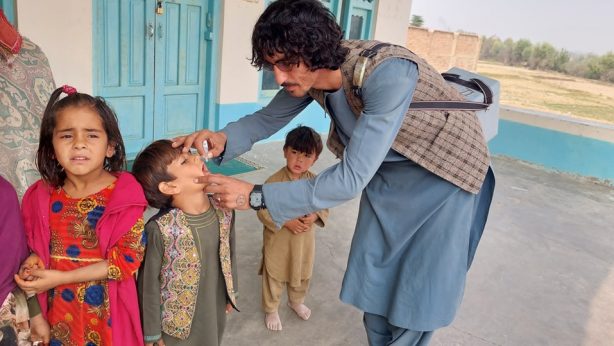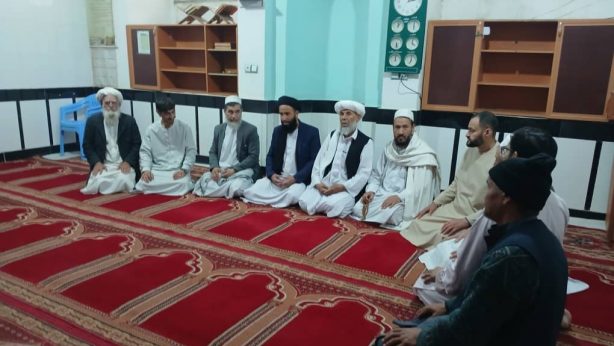From Refusal to Support: The Story of a Mother’s Change of Perspective on Polio Vaccination

Kunduz, Afghanistan – A chilly morning in Khan Abad, Kunduz, marked the beginning of a story of transformation. The soft rays of the sun filtered through the leaves of trees, dancing with the shadows on the ground. A 44-year-old mother named Naze, draped in a blue burqa, held her three-year-old son Omar in her arms. Omar’s tiny finger, marked with black ink after receiving the polio vaccine, symbolized a crucial decision in his life.
Naze, who used to reject the polio vaccine, now speaks with firm conviction and a wistful tone about her past: “When the vaccinators first knocked on our door, I was scared. I had heard rumors that the vaccine harmed children and conflicted with our beliefs. Even my mother said that the vaccine stunted children’s growth.”
These doubts had prevented her from vaccinating Omar. However, as time passed and she observed the health of vaccinated children in her community, her thoughts began to change. The day Omar received his first dose of the vaccine, Naze witnessed his improved health and growth. This experience opened her eyes.
Now she says, “The vaccine not only protects children but is also a vital step toward their healthy future.”
She has since become a supporter of vaccination in her village. Using her simple words and personal experiences, she encourages her neighbors to vaccinate their children.
Naze’s message to parents is clear: “Instead of listening to rumors, we should think about our children’s health.”
 Naze’s message to parents is clear: “Instead of listening to rumors, we should think about our children’s health.” © Polio Free Afghanistan/ 2024/ Raqiba Hamidi
Naze’s message to parents is clear: “Instead of listening to rumors, we should think about our children’s health.” © Polio Free Afghanistan/ 2024/ Raqiba Hamidi
Shamila: A Health Advocate
Alongside Nazi, Shamila, an active supervisor of polio vaccination campaigns, strives to encourage hesitant parents to vaccinate their children by providing accurate information with a friendly approach.
This 22-year-old vaccinates dozens of children every day, often visiting households viewed with suspicion.
Sharing one of her success stories, she recounts: “There was a father who refused the polio vaccine, believing it would harm his child. When I showed him how his neighbors’ children were vaccinated and healthy, he gradually changed his mind. In the end, he allowed his child to be vaccinated.”
Shamila believes her work is more than just a job—it is a social responsibility.
She says: “When a child is protected from dangerous diseases through vaccination, I feel like I have served my community.”
Her message to parents is clear: “Let’s stop believing in rumors and make the right decisions for our children’s health.”
Fawzia: The Voice of the Community
Fawzia Farhat, a 42-year-old social activist, also contributes to changing perceptions.
With patience and persistent effort, she participates in local awareness meetings, educating parents that the polio vaccine not only aligns with their values but is also a vital step toward ensuring the health of future generations.
“Many families avoid vaccination due to traditional beliefs or fears. However, when we engage with them directly and provide real-life examples, their perspectives begin to shift,” she explains.
Fawzia also urges other social and religious leaders to collaborate in raising public awareness and building trust in the vaccination efforts.
A Hopeful Message
The stories of Naze, Shamila, and Fawzia demonstrate how awareness and personal experiences can dispel rumors and transform mindsets.
Thanks to the efforts of these women, many families in Khan Abad now vaccinate their children, paving the way for a brighter future.
The collective message of these women to the community is simple yet powerful: “Let us not allow our children to fall victim to rumors. Vaccination is the key to a brighter future.”
Raqiba Hamidi, Polio Free Afghanistan


